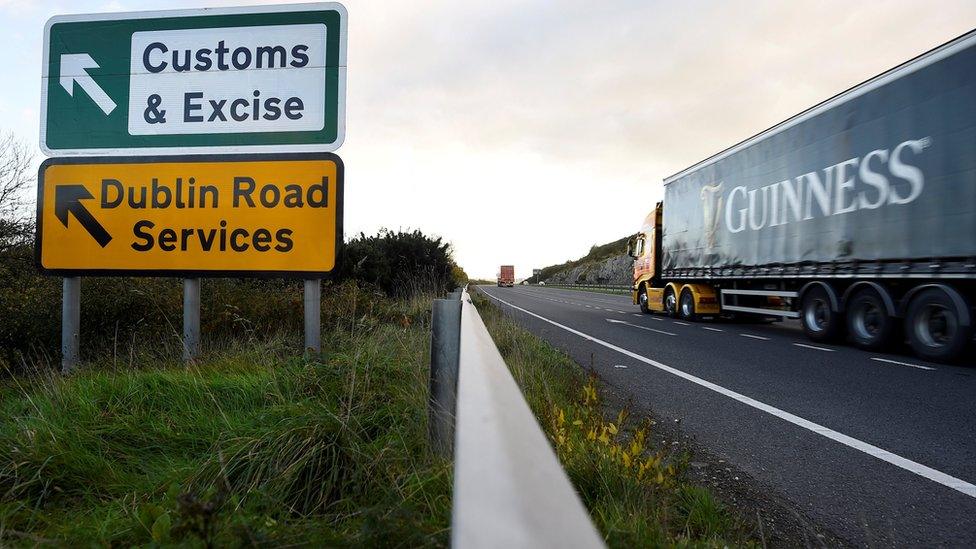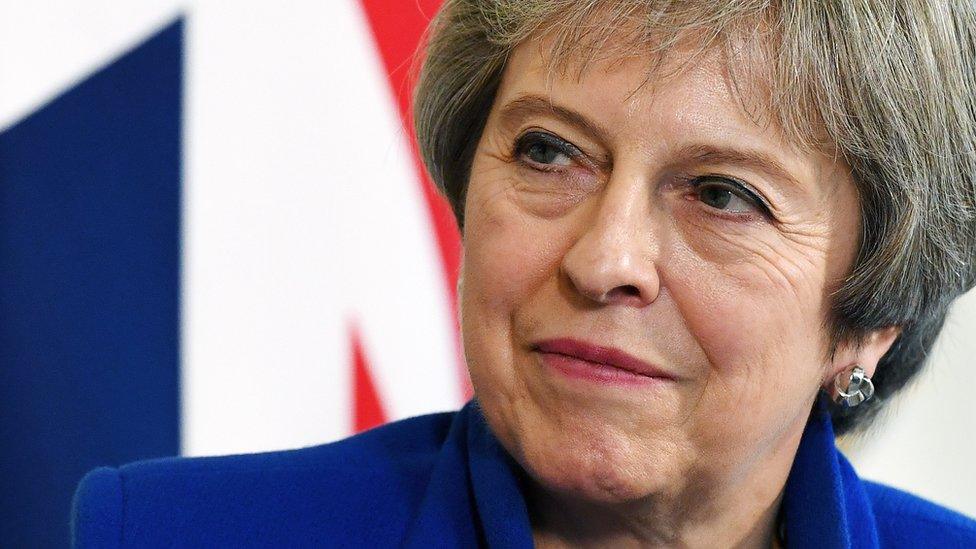Brexit: 'No-deal scenario worse for NI than backstop'
- Published

The Irish border is the last outstanding issue in the Brexit withdrawal negotiations
A no-deal Brexit would be much worse for the Northern Ireland economy than a scenario in which an NI-backstop is triggered, official government analysis suggests.
It estimates that in a no-deal scenario, NI goods exports would fall by as much as £1.6bn compared to a backstop scenario.
Most of the damage would be borne by the agri-food sector.
It estimates this sector would take a hit of between £700m and £1.1bn.
The study, seen by the BBC, is described as presenting "illustrative, order of magnitude estimates".
BBC News NI's political reporter Jayne McCormack explains why the border is an issue
The analysis assumes that no deal would mean increased customs, tariffs and regulatory costs on trade between Northern Ireland and the EU.
It also assumes that the backstop would mean increased regulatory costs on GB sales into Northern Ireland.
The backstop is an arrangement which will apply if the Irish border cannot be kept as frictionless as it is now in the context of a wider deal.
The study comes with a number of caveats about what has been considered in the economic modelling.
It does not factor in any countervailing benefits from the backstop such as some businesses relocating from the Republic of Ireland to get better market access to the UK.
Would you notice if you crossed the Irish border? (Video from 2017)
It also does not consider the wider impact of no deal on the UK economy as a whole.
However, it concludes: "Noting all the necessary caveats we estimate that the trade costs would be higher under no deal compared to the (backstop) protocol by a factor of approximately 10."
- Published14 November 2018

- Published16 October 2019
